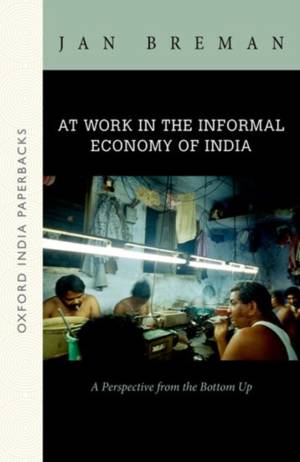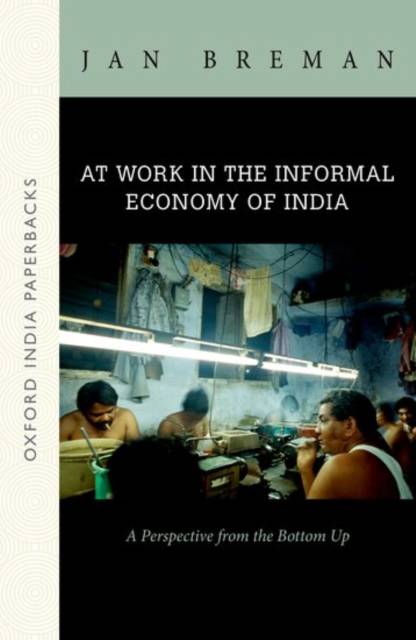
Door een staking bij bpost kan je online bestelling op dit moment iets langer onderweg zijn dan voorzien. Dringend iets nodig? Onze winkels ontvangen jou met open armen!
- Afhalen na 1 uur in een winkel met voorraad
- Gratis thuislevering in België vanaf € 30
- Ruim aanbod met 7 miljoen producten
Door een staking bij bpost kan je online bestelling op dit moment iets langer onderweg zijn dan voorzien. Dringend iets nodig? Onze winkels ontvangen jou met open armen!
- Afhalen na 1 uur in een winkel met voorraad
- Gratis thuislevering in België vanaf € 30
- Ruim aanbod met 7 miljoen producten
Zoeken
At Work in the Informal Economy of India
A Perspective from the Bottom Up (Oip)
Jan Breman
Paperback | Engels
€ 35,45
+ 70 punten
Omschrijving
With labour being pushed out of agriculture, Jan Breman analyses why, when, and how the massive shift in production and employment came about. The book is divided into two parts. The first part discusses the past and present path of capitalism and dwells on the abominable condition of the unorganized workforce and the commodification of labour, familiarizing the reader with the concept of informality and its ramifications. The second part, a compilation of well-established, critical readings in the field by the author, elaborates on themes and issues introduced in the first part of the book. Drawing upon detailed field accounts and a critique of the informal sector at both analytical and empirical levels, the author examines different aspects of the labour regime that, in the past decades, has become dominant in the world at large, with serious consequences for the labouring poor in India.
Specificaties
Betrokkenen
- Auteur(s):
- Uitgeverij:
Inhoud
- Aantal bladzijden:
- 467
- Taal:
- Engels
Eigenschappen
- Productcode (EAN):
- 9780199467716
- Verschijningsdatum:
- 28/09/2016
- Uitvoering:
- Paperback
- Formaat:
- Trade paperback (VS)
- Afmetingen:
- 137 mm x 216 mm
- Gewicht:
- 453 g

Alleen bij Standaard Boekhandel
+ 70 punten op je klantenkaart van Standaard Boekhandel
Beoordelingen
We publiceren alleen reviews die voldoen aan de voorwaarden voor reviews. Bekijk onze voorwaarden voor reviews.











